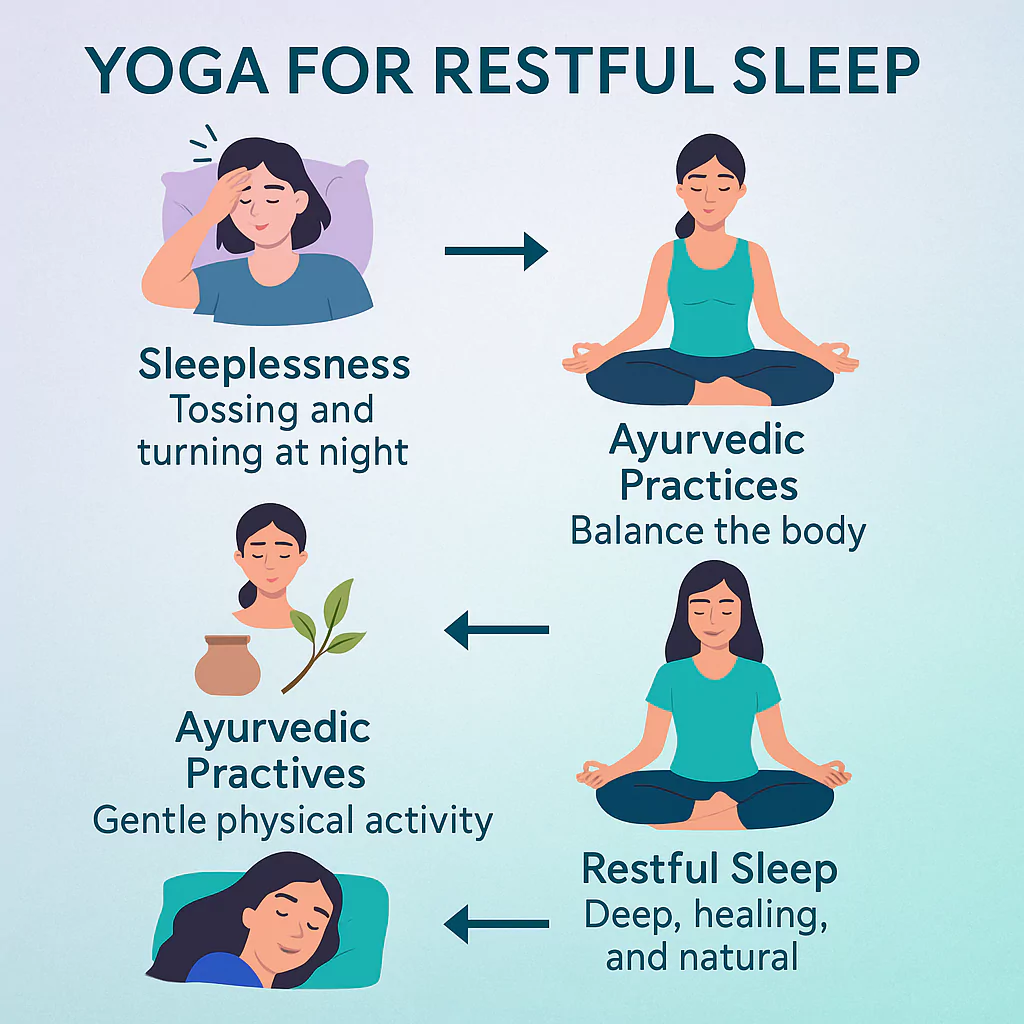- +91-9908755573
- ithadeepa77@gmail.com
- Hyderabad, Telangana
Sleep is one of the most powerful tools for healing, yet it is often overlooked in modern health approaches. Yoga and Ayurveda view sleep as a foundation of well-being, essential for restoring the body, calming the mind, and balancing the nervous system. Poor sleep can worsen chronic conditions, increase inflammation, and weaken immunity. By understanding sleep’s role and applying yogic practices, we can reclaim our health naturally.
Why is Sleep Essential for Health and Healing?
Sleep is the time when the body undergoes deep repair and rejuvenation. It affects:
In chronic illnesses lack of quality sleep can worsen inflammation, pain sensitivity, and immune dysfunction.

What Happens When We Don’t Get Enough Sleep?
Chronic sleep deprivation affects nearly every system in the body:
How Much Sleep Do We Need?
Most adults require 7-9 hours of quality sleep. More than just the quantity, the quality and consistency of sleep matter.
Aligning sleep with natural circadian rhythms enhances healing.
How to Improve Sleep Naturally?
Yogic Practices to Improve Sleep
Yoga offers powerful tools to balance the nervous system and induce deep rest.
Asanas (Postures) for Better Sleep
(To be done under guidance with support only)
Pranayama (Breathwork) for Sleep
Guided Relaxation
What is Sleep Debt, and Can We Catch Up?
Sleep debt accumulates when we don’t get enough rest over time. While occasional extra sleep helps, chronic deprivation cannot be fully reversed. Long-term sleep debt increases the risk of:
Common Myths About Sleep
Restoring Sleep Naturally Through Yoga Therapy
Integrating breathwork, Ayurvedic practices, and yogic routines can restore deep, healing sleep. Whether struggling with chronic illness, stress, or insomnia, personalized yoga therapy can help recalibrate your sleep cycles for better health, immunity, and energy.